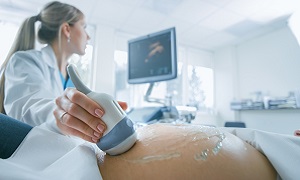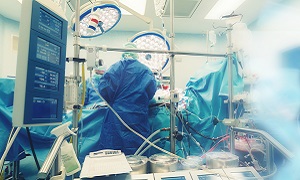Anal Cancer
Anal cancer occurs when cancer cells form tumors in the tissues of the anus. The anus is the small opening located at the lower end of the intestines. This condition causes signs and symptoms such as anal pain and rectal bleeding.
It is an uncommon form of cancer occurring in the anal canal. This canal is a short tube at the rectum end that allows stools to leave your body.
Generally, anal cancer is rare, but when it occurs, it can spread to other parts of the body. If you develop any of the signs and symptoms of this condition, then it is best to see your doctor immediately.
Symptoms
Symptoms of anal cancer can be similar to those of hemorrhoids, gastrointestinal diseases, and irritable bowel syndrome.
These include:
- Changes in bowel habits
- Thin Stools
- Discharge from the anus or itching
- Bleeding from the Rectum
- Pain, Pressure, or the Formation of a lump near the anus
- A growth or mass in the anal canal
- Anal itching
If you experience any of these symptoms and aren’t sure of the cause, then it is best to go to your doctor for evaluation. They will be able to do certain tests to diagnose if these symptoms belong to anal cancer.
Causes & risk factors
Anal Cancer generally develops when due to an inherent mutation, normal and healthy cells turn into abnormal cells. Healthy cells grow and multiply at a set rate, eventually dying at a set time. Abnormal cells grow and multiply out of control, and they don’t die either. Thus, these accumulating abnormal cells form a mass or a tumor. Cancer cells invade nearby tissues and may separate from an initial tumor and spread elsewhere in the body.
Anal cancer is also related to a sexually transmitted infection known as human papillomavirus or the HPV virus. This HPV virus is detected in the majority of anal cancers and is therefore considered to be the most common cause of anal cancers.
Several factors are known to increase the risk of anal cancer. Some of these include:
- Older age- Most cases of anal cancer are generally seen in people aged 50 or older.
- Having many sexual partners- People who have many sexual partners over their lifetime generally have a greater risk of this condition.
- Anal sex- People who engage in receptive anal sex also have an increased risk of anal cancer.
- Human papillomavirus (HPV)- The HPV infection can increase your risk of several cancers, which also include anal cancer. HPV infection is a sexually transmitted infection which might cause genital warts as well.
- Smoking- Smoking cigarettes also increase the risk of anal cancer.
- Having a history of cancer- Those who have had cervical, vulvar or vaginal cancer are at an increased risk of anal cancer.
- Immunosuppressive drugs- Some people take drugs to suppress their immune systems. This includes people who have received organ transplants. They may have an increased risk of anal cancer. The HIV virus also suppresses the immune system and can increase the risk of anal cancer.
Diagnosis
People who are at high risk for anal cancer can be diagnosed by screening tests, such as the digital rectal exam or anal Pap test. A doctor might also find anal cancer during a routine physical exam or during a minor. Treating cancers that are found in this way is very effective since the tumors are found early.
Generally, a doctor first asks about your medical history if you have any symptoms of anal cancer. Your doctor will also examine you to look for signs of anal cancer, as well as other health problems. If any problems are found, your doctor is going to require a few other exams or tests to find the cause of cancer. A few more tests can be required, which include the following:
Digital rectal exam
Anoscopy
For anoscopy, a doctor uses a short, hollow, firm tube called an anoscope, which may have a light on the end of it. The anoscope is coated with a gel and then gently it is gently pushed into the anus and the lower rectum.
The doctor is able to have a clear view of the lining of the lower rectum and anus. Samples from abnormal areas can be taken at the same time, to be tested in the lab. During this test, you will be conscious but it doesn’t usually hurt.
Rigid proctosigmoidoscopy
Endoscopy
Biopsy

If a change or abnormal growth is detected during an endoscopic exam, then your doctor is going to need to take out a piece of it so that it can be determined in the lab if it’s cancerous. This is called a biopsy. If the growth is in the anal canal, it may be through the scope itself. Sedative drugs may be used to numb the area before the biopsy is taken. If the tumor is too small, your doctor might try to remove the entire tumor during the biopsy.
Blood tests
If you have risk factors for HIV, your doctor is likely going to order a blood test to check for it. This information is important since HIV positive patients require treatment for HIV so that their immune system is healthy again before they undergo cancer treatment.
Ultrasound
Ultrasound uses sound waves for creating images of the internal organs or masses. This can help to see how deep cancer has grown into the tissues near the anus. Although for most ultrasound exams, a transducer is moved around on the skin, for anal cancer, the transducer is put into the rectum. Although the test can be uncomfortable, it generally doesn’t hurt.
Computed tomography (CT) scan
Magnetic resonance imaging (MRI)
MRI scans use radio waves along with strong magnets. Contrast material may be injected into a vein before the scan to see details better.
This test is also used to see if nearby lymph nodes are enlarged, which is an indication that cancer has spread there. MRI can also be used to look at abnormal areas in the liver or the brain and spinal cord that could be cancer spread.
Chest x-ray
Positron emission tomography (PET) scan
Treatment
The treatment you receive for anal cancer generally depends on several factors, which include your overall health, the stage of your cancer, as well as your own preferences.
In most cases, anal cancers are treated with a combination of chemo and radiation. Together these two treatments can enhance the chances of having a cure.
Chemo
In Chemo treatment, drugs are injected into a vein, or taken as pills. These chemicals travel throughout the body and rapidly kill growing cells, including the cancer cells. However, they also cause damage to some of the healthy cells, and this can cause certain side effects, like vomiting, nausea, and hair loss.
Radiation Treatment
Radiation treatment involves using high-powered beams like X-rays and protons, to kill the cancer cells. During the procedure, you are positioned on a table, and a large machine moves over you and directs the radiation beams to specific areas of your body to target cancer.
However, it is to be noted that radiation can also damage any health tissue near where the beams are aimed. Side effects can include skin redness and sores in and around the anus, as well as hardening and shrinking of your anal canal.
For anal cancer, radiation treatment is generally required for five to six weeks.
Though the combination of chemo and radiation makes the treatments more effective, side effects become more likely. You can talk to your doctor regarding the side effects you can expect.
Depending on the stage of your cancer, your doctor might also recommend surgery.
Surgery for removal of early-stage anal cancers
Small anal cancers can be removed through surgery. During the procedure, the surgeon will remove the tumor and a small amount of healthy tissue surrounding it.
Since the tumors are small, early-stage cancers can sometimes be removed without causing any damage to the anal sphincter muscles surrounding the anal canal.
Depending on your cancer, your doctor may also recommend chemo and radiation after surgery.
Surgery for cancer that hasn't responded to any other treatments
If your cancer is not responding to chemo and radiation, your doctor might recommend a more extensive operation which is known as abdominoperineal resection, also called AP resection. During this method, the surgeon will remove the anal canal, rectum along a portion of the colon. The surgeon then attaches the remaining portion of your colon to an opening or stoma in your abdomen through which waste is able to leave the body and collect in a colostomy bag.
Immuno Treatment
Palliative care
This is specialized medical care that emphasizes providing pain relief and relief from symptoms of any offer serious disease. The specialists work closely with you and your family to provide you with additional support complementing your current treatment. You can undergo this type of treatment along with other treatments like chemo, surgery, and radiation. You may live longer as you feel better undergoing this treatment. A team of doctors and specially trained professionals provide palliative care. They improve the quality of life for you as well as your families.
Alternative Medicine
This treatment cannot cure cancer but help the patients cope with any side effects of cancer. This type of treatment provides additional comfort and complements your current treatment from the doctor.
- Nausea: Hypnosis, acupuncture, music treatment
- Anxiety: massage, hypnosis, exercise, meditation, relaxation technique, music treatment
- Sleep problems: Relaxation technique or yoga
- Fatigue: Tai chi or gentle exercise
- Pain: Massage, hypnosis, acupuncture, music treatment
Coping and support
- Ask your doctor about the details of anal cancer which include its staging, type, prognosis, and treatment.
- Stay in close contact with your friends or family who will take care of you and support you.
- Find someone whom you can talk to whether a family member or a friend. You may also take the help of a support group and be a part of any of those communities.
Complications
Prevention
Although there is no way of preventing anal cancer, you can reduce the risk of the same.
- Getting vaccination for HPV: Vaccines are available that you can take to protect yourself from HPV infection. Whether you are an adult or a teenager and a boy or a girl, you can get the vaccine.
- Quit smoking: If you are having the habit of smoking, you must quit the same immediately as smoking can increase your risk of developing anal cancer.
- Practicing safer sex: It helps to prevent both types of sexually transmitted viruses- HIV and HPV that increase your risk of developing anal cancer.










